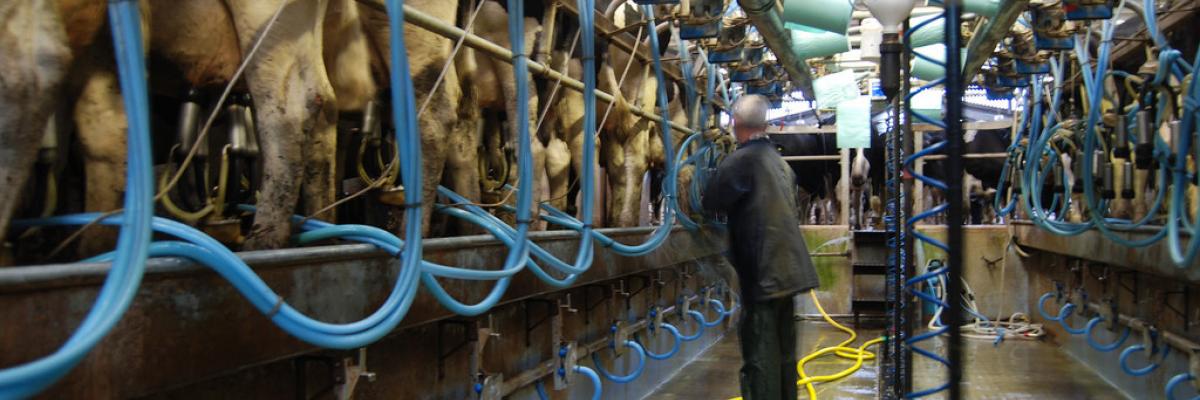
Alternatives to antibiotics in agriculture
A Nuffield Farming Scholarships Trust Report
Download the PDF
Many antibiotics used to treat humans are also used in agriculture. The inappropriate use of antibiotics in agriculture is creating antimicrobial resistance, threatening both livestock and human health. Aled Rhys Davies was raised on a beef and sheep farm and was sales director (when this report was written) at Kilco International, a company specialising in farm hygiene products. He is allergic to penicillin, and became aware that antimicrobial resistance making other antibiotics ineffective is potentially life threatening. This led him to undertake a Nuffield Scholarship on alternatives to antibiotics. All types of livestock were investigated (ruminants, pigs, poultry and fish) across a range of countries, each with different approaches to antimicrobial resistance. He wanted to see if he could find similar husbandry or management patterns, identify best practices, and identify products or services that gave farmers realistic alternatives to antibiotics.
- Antimicrobial resistance is a threat to humans and animals; agriculture has a key role to play in reducing this threat.
- Prudent use of antibiotics should be the aim; only using antibiotics when they are really necessary and focus on alternatives to decrease the need for antibiotics.
- Prevention is better than cure; take measures to improve animal immunity and reduce exposure to disease. These measures can include improving farm hygiene, reducing stress on livestock and ensuring good nutrition to maintain health.
- Farms should develop evidence-based strategies to prevent disease. These will be specific to on-farm threats and ensure that the right type of antibiotics are used for the bacteria found.
- Farm businesses that show careful use of antibiotics to limit antimicrobial resistance may become more popular with consumers and will prosper as a result.
- Failing to use antibiotics in agriculture prudently can lead to new antibiotics becoming restricted for agricultural use.
- Commercial companies offering hygiene/nutritional services that reduce infection pressure on livestock could become more important in managing infection/disease.

